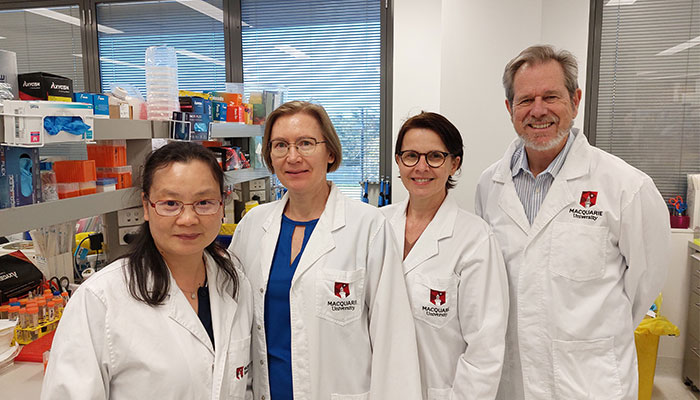Macquarie University Secures $2 Million for Cutting-Edge Cancer Research Center
The ACRF Centre for Advanced Cancer Modelling brings together research, clinical and bioengineering expertise, and will work to advance precision medicine by establishing a series of cancer models and embedding them into translational research programs and clinical practice. Led by the Faculty of Medicine, Health and Human Sciences, the centre also involves partners from Chris O’Brien Lifehouse and Melanoma Institute Australia.
Precision medicine creates individualised treatments for patients, often based on genetics. Cancer models are clinically relevant biological systems that share features with human cancers, and include patient tissue samples and cell cultures, and liquid biopsy, and animal models.
Led by Professor Helen Rizos, Leader of the Precision Cancer Research Team, and a team of translational and clinical researchers including Professor Howard Gurney, Director of Clinical Trials, the new centre will allow multidisciplinary collaboration across faculties in the University and with other institutions.
“The reason we need this centre is that biomarker-driven precision oncology has delivered many successes, but it has not delivered durable benefits for most patients,” Professor Rizos says.
“Part of the reason for this is that treatment selection for patients is often based on tumour genetics and does not include functional data.
“There is a need to integrate functional precision oncology with biomarker research to assign existing and novel drugs to cancer patients who will respond.”
 Real-world impact: Members of the project team, Professor Yuling Wang, from the Faculty of Science and Engineering, and from the Faculty of Medicine, Health and Human Sciences, Dr Elena Shklovaskaya, Professor Helen Rizos and Professor Howard Gurney.
Real-world impact: Members of the project team, Professor Yuling Wang, from the Faculty of Science and Engineering, and from the Faculty of Medicine, Health and Human Sciences, Dr Elena Shklovaskaya, Professor Helen Rizos and Professor Howard Gurney.
While research teams around the world are investigating individual cancer models, the new centre will focus on bringing together multiple, relevant models that will advance cancer research and improve patient outcomes, supporting real-time treatment decisions tailored to each patient.
Most of the grant will fund the purchase of cutting-edge laboratory equipment, including a high-precision BIO CELLX bioprinter, a fully integrated spatial biology imaging platform to analyse hundreds of markers on a single sample, a light-sheet microscope for high-resolution 3D imaging of larger samples at subcellular resolution, and a high-content confocal system to capture images of tissues, and 2D and 3D models.
A bioprinter is essentially a 3D printer for living cells, allowing cells taken from tissue samples to be ‘printed’ into organ-like structures that closely resemble individual tumours. These structures willbe used to evaluate the effectiveness of different drugs for specific patients and so guide treatment decisions.
Deputy Vice-Chancellor (Research), Professor Sakkie Pretorius, says the new centre is a pleasing recognition of Macquarie’s growing reputation in the field of cancer research.
“The University has a proud history of innovation and collaboration that delivers real-world impact in a range of areas of medicine,” Professor Pretorius says.
“This will allow us to maximise our expertise across precision medicine, bioengineering and clinical trials to drive discoveries that will improve treatment outcomes for cancer patients around the world.
“We also look forward to the centre becoming a nationwide hub for developing emerging researchers.”
As part of the grant agreement, the centre will also host a half-day symposium on cancer research next year.

